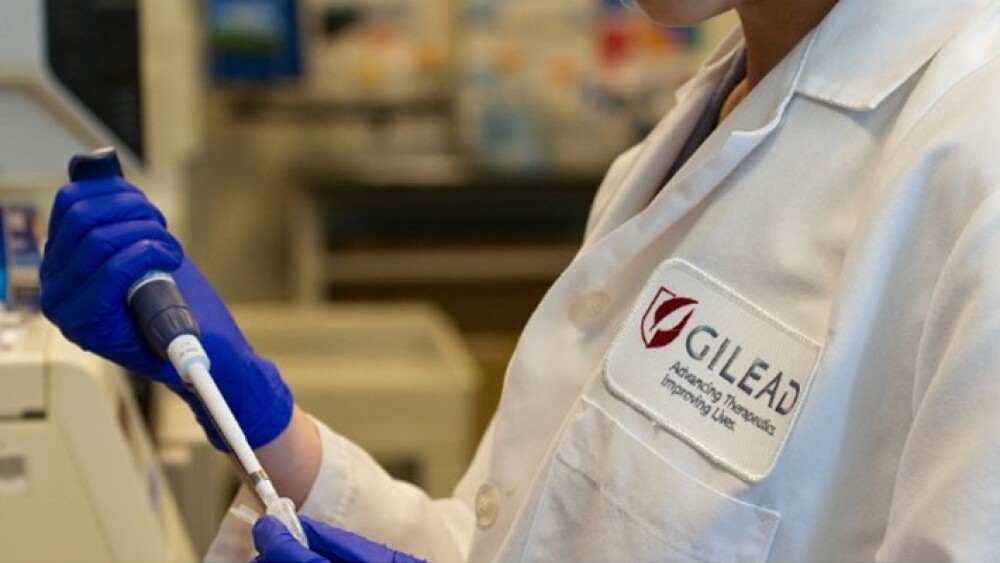May 5, 2017
By Mark Terry, BioSpace.com Breaking News Staff
On May 2, Gilead Sciences released its first-quarter financial results. Total revenues were down, as expected. Gilead reported $6.5 billion for the first quarter 2017, compared to $7.79 billion in the first quarter of 2016.
As expected, the company is really getting hammered with its hepatitis C (HCV) franchise, which is the company’s foundation. Its three HCV drugs, Sovaldi, Harvoni and Epclusa, brought in $2.6 billion for the quarter, down dramatically from $4.3 billion in the first quarter of 2016.
U.S. sales dropped 18 percent due to “increased competition.” European revenues for HCV dropped 42 percent year over year and 22 percent sequentially, claiming, again, increased competition. Japanese HCV sales dropped 81 percent year over year and 35 percent sequentially, also from increased competition and “a decrease in patient starts.”
Writing for The Motley Fool, Todd Campbell writes, “Those declines could have been worse if not for innovation that’s given Gilead Sciences’ HCV lineup an edge over other treatment. In particular, about 40 percent of genotype 1 HCV patients can take Harvoni over only eight weeks, rather than 12 weeks, and that lower burden is a plus for payers and patients alike. Epclusa’s launch has also supported market share by improving cure rates and treatment burden for genotype 3 patients, which is historically tougher to treat.”
That being said, Campbell thinks Gilead’s HCV franchise hasn’t hit rock bottom yet. His argument is partly related—this should sound familiar—to competitive pressures, notably from AbbVie. Gilead has managed to stay ahead of Merck’s Zepatier because there are diagnostic testing requirements for the drug, which aren’t necessary for Harvoni.
The U.S. Food and Drug Administration (FDA) accepted AbbVie’s New Drug Application (NDA) for glecaprevir/pibrentasvir (G/P) last quarter, also tacking on a priority review. European regulatory agencies are also reviewing G/P under an accelerated review process, as are Japanese regulators.
Campbell writes, “It’s not a lock that regulators give G/P a green light, but its efficacy in trials was very good, and that has AbbVie laying the groundwork for a launch this year. In trials, 99 percent of patients with genotype 1, 2, 4, 5, or 6 achieved a sustained virologic response (SVR) at 12 weeks following treatment with G/P. A second study showed that 95 percent of genotype 3 patients without cirrhosis who took G/P for eight weeks also hit that SVR12 mark.”
And what probably is giving Gilead executives sleepless nights is that AbbVie’s product shows efficacy in the genotype 3 patients on an eight-week course of treatment, as well as in the other genotypes for eight weeks.
Campbell notes, “The addressable HCV market is declining thanks to these functional cures, but that means a smaller pie for Gilead Sciences, AbbVie, and Merck & Co to split. Assuming AbbVie gets a go-ahead for G/P, aggressive pricing could make it the preferential treatment in insurance formularies, clearing the way for another wave of battling over price.”
Gilead isn’t giving up on HCV. It has one final product to launch, its SOF/VEL/VOX combo, which is awaiting regulatory approval. Meanwhile, its HIV franchise is strong and looks to have a bright future. It appears to be doubling down on nonalcoholic steatohepatitis (NASH), with three products in its pipeline, and the company appears excited about its filgotinib for various autoimmune disease. What’s on everybody’s mind is whether—When? If?—Gilead will buy something, possibly in the oncology area.
When the company brought on Novartis’ Alessandro Riva as senior vice president, Hematology and Oncology Therapeutic Area Head, many investors and analysts saw it as a sign Gilead was going to accelerate its merger-and-acquisition activity, although that’s hardly new speculation. There are at least some hints that Gilead is looking to buy something to bolster its waning HCV franchise, but so far they are in a holding pattern.





